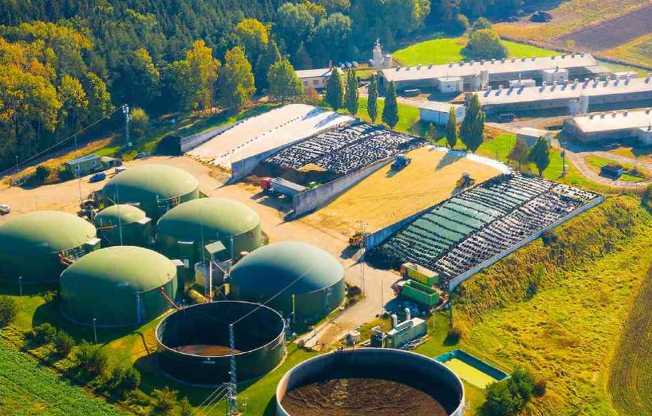Biomass energy is a renewable source that utilizes organic materials such as agricultural, forestry, or urban waste to generate electricity, heat, or biofuels. Its use helps reduce carbon emissions by replacing fossil fuels.
Recent and Most Used Technologies:
The most advanced technologies in biomass energy include direct combustion, gasification, pyrolysis, and anaerobic digestion. Direct combustion is primarily used to generate electricity and heat through modern, highly efficient boilers. Gasification converts organic materials into synthetic gas (syngas), which can be used to produce electricity or liquid fuels. Pyrolysis decomposes biomass at high temperatures in the absence of oxygen to produce bio-oil and biochar. Anaerobic digestion is a key technology for treating urban and agricultural organic waste, producing biogas, a mixture of methane and carbon dioxide used as a clean energy source. These technologies are increasingly complemented by carbon capture and storage (CCS) systems to maximize sustainability.
Production Costs and Capacities:
Production costs in biomass energy vary depending on the technology and type of biomass used. On average, electricity generation from biomass has a levelized cost ranging from $0.06 to $0.14 per kWh. Biogas plants, depending on their size, can cost between $1,000 and $3,000 per kW installed, while pyrolysis and gasification plants have higher upfront costs due to their technological complexity. In terms of capacities, facilities like the Ironbridge plant in the United Kingdom, generating 740 MW, and biogas plants in Germany—leaders in production with thousands of small distributed plants—demonstrate that biomass can meet both local needs and large-scale energy demands. Productivity depends on the availability of local biomass and supportive policies that encourage its sustainable use.


